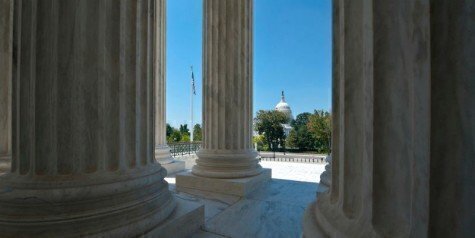On December 9, the Supreme Court will hear oral arguments in Fisher v. University of Texas at Austin, a landmark challenge to affirmative action at Texas’ flagship public university.
 Constitutional Daily contributor Lyle Denniston, writing for SCOTUSblog, frames the Fisher case as a potential landmark decision, if the Justices rule beyond the bare-bones facts of the case.
Constitutional Daily contributor Lyle Denniston, writing for SCOTUSblog, frames the Fisher case as a potential landmark decision, if the Justices rule beyond the bare-bones facts of the case.
“It could be that the result would go so far as to make it unconstitutional for public universities and colleges to take race into account in any way in choosing their entering classes. And, even if it falls short of that, it could at least bar those institutions from considering minority students’ educational talents — or lack of them — as an admissions factor,” he said in a case preview.
The University of Texas is required to admit all high school seniors who rank in the top 10 percent of their high school classes. Candidates for any remaining spots undergo a “holistic” evaluation process in which race is among the considered factors.
You may remember that the Supreme Court has heard this case before. In 2013, the Court indeed issued a decision, but it sent the case back to the lower courts to be reviewed under a tougher constitutional standard.
Past decisions in Regents of the University of California v. Bakke (1978) and Grutter v. Bollinger (2003) confirmed that, while specific quotas for minority groups were unconstitutional, race could be considered as part of an array of holistic factors in admissions decisions.
Former University of Texas applicant Abigail Fisher contends that the school’s discriminatory admission policies led to her rejection, even though her qualifications surpassed those of many admitted minority students.
The university maintains a program by which the top 10 percent of students in each public graduating class are granted automatic admission; Fisher argues that this is enough to ensure diversity. (She narrowly missed the cut at Stephen F. Austin High School, finishing 82nd out of 674.)
The U.S. Fifth Circuit Court of Appeals has twice agreed with the University of Texas policy, finding that that program makes limited use of race, and it conforms to the university’s intent to promote a racially and culturally diverse student body.
Fisher argues the 14th Amendment’s the Equal Protection Clause prohibits the school from considering race in any manner as part of the admissions process.







